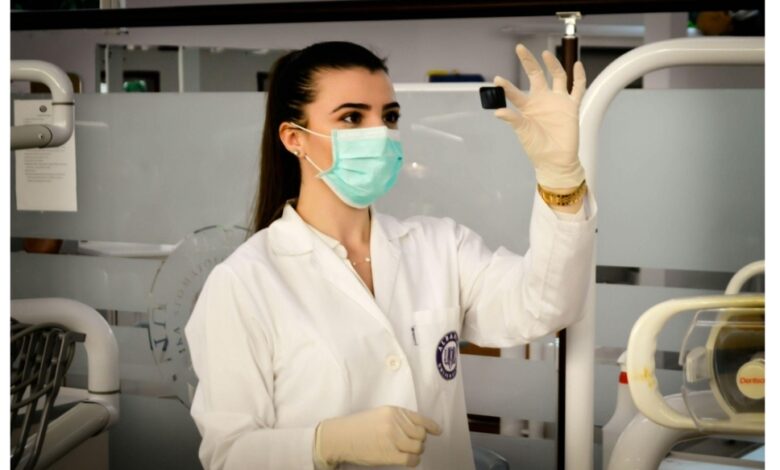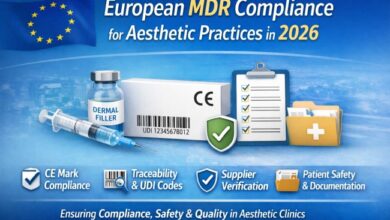The Importance of Understanding the Value of Preventive Care in Modern Healthcare

Preventive care is crucial in modern healthcare because it focuses on early detection, lifestyle changes, and routine screenings to maintain health and reduce risks. By understanding the value of preventive care in modern healthcare, we can see how it not only improves health outcomes but also reduces healthcare costs. This article will explore the benefits, types, and integration of preventive care into healthcare systems, helping you understand its significance.
The Role of Preventive Care in Modern Healthcare
Preventive care is a proactive approach to healthcare that emphasizes early disease detection, lifestyle modifications, and routine screenings to maintain health and mitigate risks. Identifying potential health issues early allows preventive care to manage and prevent diseases, enhancing health outcomes and overall wellness. This approach promotes health and offers significant benefits by reducing the prevalence of serious health issues.
Furthermore, preventive care can significantly reduce healthcare costs. Focusing on early detection and prevention allows healthcare systems to avoid the high costs of treating advanced diseases. This cost-saving aspect of preventive care highlights the importance of integrating preventive measures into healthcare plans and services, ultimately benefiting both patients and healthcare providers.
The Benefits of Preventive Care
The benefits of preventive care are manifold, including:
- Early disease detection through regular health screenings and clinical preventive services.
- Easier and less costly treatment of health issues identified at an early stage.
- Significant health benefits from a reduction in the risk of serious health problems and associated healthcare costs.
- A notable example is the approximately 50% decline in coronary heart disease mortality, demonstrating the profound impact of preventive care on health outcomes.
Another significant benefit of preventive care is the promotion of healthy lifestyle behaviors. Health promotion activities, such as counseling on diet, exercise, and smoking cessation, are primary components of primary prevention and secondary prevention. Many individuals also improve their wellness by incorporating fitness routines and using quality gym equipment to stay active and prevent lifestyle-related conditions.
These activities help individuals adopt healthier lifestyles, reducing the risk factors associated with chronic diseases like heart disease and diabetes. Engaging in preventive care not only improves physical health but also enhances emotional well-being by reducing the stress associated with managing chronic illnesses, contributing to disease prevention.
Preventive healthcare measures also contribute to increased longevity and quality of life. By preventing diseases before they develop, individuals can lead longer, healthier lives with fewer health concerns. This holistic approach to health care emphasizes the importance of routine health screenings and health education, ensuring that patients remain informed and proactive about their health.
How Preventive Care Reduces Healthcare Costs
Preventive care plays a pivotal role in reducing healthcare costs by addressing health issues before they escalate into more severe and costly conditions. By implementing preventive care services, healthcare systems can mitigate financial strain and achieve substantial long-term savings. For example, value-based care programs have demonstrated a 25.8% reduction in medical costs by focusing on preventive measures rather than extensive treatments.
This proactive approach not only improves patient health outcomes but also ensures more efficient allocation of healthcare resources, ultimately leading to reduced healthcare costs.
Types of Preventive Care Services

Preventive care services encompass a wide range of interventions designed to improve health outcomes through early disease detection and proactive health management. These clinical services include:
- Routine screenings
- Immunizations
- Medications
- Lifestyle changes
- Counseling All aimed at preventing diseases and promoting overall wellness. Implementing these preventive measures helps healthcare systems reduce costs and improve patient health outcomes through preventive healthcare services.
The different types of preventive care services are essential components of a comprehensive healthcare services strategy. Routine health screenings, immunizations, and lifestyle counseling are among the most critical preventive services, each playing a unique role in maintaining health and preventing diseases. Understanding these appropriate clinical preventive services and their benefits is crucial for both patients and healthcare providers.
Routine Screenings and Health Screenings
Routine health screenings are a cornerstone of preventive healthcare, providing essential insights into a patient’s health status. These screenings can identify medical issues early, significantly improving treatment outcomes and preventing severe complications. Regular participation in health screenings allows for early detection of potential health problems, facilitating timely interventions and better health outcomes.
Moreover, preventive health services, including routine screenings, contribute to significant savings on medical expenses. Identifying and addressing health risks promptly allows patients to avoid the high costs of advanced treatments. This proactive approach not only benefits individual patients but also reduces the overall financial risk and burden on healthcare systems.
Immunizations and Vaccinations
Immunizations are a critical component of preventive care, playing a vital role in controlling and preventing outbreaks of infectious diseases within communities. Immunizations reduce the incidence of infectious diseases, maintaining public health and preventing the spread of communicable diseases. This preventive measure is essential for safeguarding populations and ensuring long-term health benefits.
The importance of immunizations cannot be overstated, especially in today’s interconnected world. Vaccinations not only protect individuals from specific diseases but also contribute to the overall health and safety of communities. This collective benefit underscores the significance of adhering to recommended immunization schedules and ensuring widespread access to vaccines.
Lifestyle Changes and Counseling
Lifestyle changes and counseling are fundamental aspects of preventive care, focusing on promoting healthy behaviors and preventing chronic diseases. Counseling on diet, exercise, and other lifestyle choices can significantly enhance the effectiveness of preventive health measures. For instance, maintaining skin and joint health through proper nutrition can be supported by options such as collagen tablets Singapore, which many individuals use as part of their daily wellness routine.
Encouraging healthy lifestyle behaviors through counseling not only improves physical health but also enhances emotional well-being and quality of life. Addressing lifestyle-related risk factors allows preventive healthcare measures to reduce chronic diseases and promote long-term wellness. This holistic approach to preventive care emphasizes the importance of comprehensive health promotion strategies in human services.
Preventive Care and Chronic Diseases
Chronic non-communicable diseases are significant contributors to mortality. They include conditions like cardiovascular disease, diabetes, and cancer, which are among the top preventable causes of death. In industrialized countries, these chronic diseases significantly affect mortality rates and represent major health burdens. Integrating preventive care into healthcare systems can significantly lower illness rates and mortality through targeted interventions designed to manage and prevent chronic disease and disease development.
Maintaining healthy habits and utilizing preventive care measures can substantially lower the risk of serious health issues, including complications from chronic diseases and development of chronic conditions. Focusing on early detection and lifestyle modifications enables preventive care to help individuals manage their health more effectively and reduce the impact of chronic illnesses, ultimately aiding in preventing disease.
Managing Cardiovascular Disease
Preventive care is essential in the management of cardiovascular disease, focusing on early detection and the implementation of health-promoting strategies. Key strategies for preventing heart disease include regular health screenings, a balanced diet, physical activity, and smoking cessation. Adopting a heart-healthy lifestyle is crucial in managing heart disease, which includes maintaining a healthy weight, reducing stress levels, and committing to regular medical check-ups.
Through these preventive measures, individuals can significantly reduce their risk of developing heart disease and improve their overall health outcomes. Preventive care not only addresses immediate health concerns but also promotes long-term wellness by encouraging healthy lifestyle behaviors and regular medical monitoring.
Addressing Diabetes and Other Chronic Conditions
Preventive care plays a vital role in addressing diabetes and other chronic conditions by focusing on improved nutrition, weight loss, and regular exercise. Patients who take advantage of preventive care services and make lifestyle adjustments can significantly reduce their risk of developing diabetes and other chronic diseases. These proactive measures not only improve patient health but also reduce the financial and emotional burden associated with managing chronic conditions.
Promoting healthy lifestyle behaviors and providing essential health education enables preventive care to help individuals manage their health and promote health to prevent chronic diseases. This approach underscores the importance of early intervention and comprehensive prevention and health promotion strategies in achieving long-term health benefits.
Integrating Preventive Care into Healthcare Systems
Integrating preventive care into the healthcare sector is crucial for improving health outcomes and reducing healthcare costs. However, care coordination in healthcare systems often faces difficulties ensuring a consistent healthcare delivery of preventive services due to a focus on disease management.
Population health management offers a solution by focusing on improving health outcomes for specific populations through proactive care strategies and data analytics. Analyzing health data across demographics allows population health management to identify at-risk groups and implement targeted preventive measures.
This approach not only enhances preventive care initiatives but also ensures more efficient allocation of healthcare resources, ultimately improving overall health outcomes and reducing healthcare costs.
Role of Healthcare Providers
Healthcare providers play a vital role in delivering preventive services by identifying health risks and implementing preventive measures. Healthcare professionals assess patients’ health status and potential risks, which is essential for effective preventive care. Value-based care empowers providers to focus on preventive strategies that address social determinants impacting health outcomes.
Additionally, value-based payment models can enhance the uptake of preventive services by incentivizing quality over quantity. Prioritizing preventive care enables healthcare providers to improve patient outcomes and reduce costs, contributing to a more efficient healthcare system.
Use of Technology in Preventive Care
Technological advancements are increasingly being integrated into preventive care, including:
- AI and wearable devices which enable better tracking of health metrics and personalized recommendations.
- AI tools that streamline preventive care processes by providing insights and helping healthcare providers focus on high-risk patients.
- Integration of electronic health records which enhances patient engagement and facilitates timely preventive interventions.
Emerging technologies, such as artificial intelligence and machine learning, are enhancing diagnostic accuracy and enabling proactive health interventions in preventive care. Leveraging these innovative technologies allows healthcare providers to improve early detection and treatment, promoting better health outcomes and reducing costs.
Barriers to Preventive Care Adoption
Despite the clear benefits of preventive care, there are several barriers to its widespread adoption. A significant portion of resources in healthcare is allocated to disease management, with only a small percentage receiving recommended preventive services. Additionally, healthcare systems face suboptimal performance and disparities in care, which hinder the adoption of preventive measures.
To enhance the utilization of preventive services, multiple strategies must be implemented. These include:
- Organizational leadership
- Education
- Measurement
- Reimbursement
Addressing these barriers ensures more consistent delivery of preventive care services, ultimately improving health outcomes and reducing costs.
Financial Barriers
Financial incentives for healthcare providers usually do not align with preventive care efforts, leading to a lack of prioritization. Financial and economic considerations heavily impact preventive care prioritization and decisions. Providers often do not prioritize preventive care services because financial incentives do not align with a focus on prevention.
Healthcare payers play a crucial role in influencing practices and providing payment models that affect the uptake of preventive care services. Value-based payment models and reporting on preventive health quality measures can increase the utilization of preventive services, ultimately improving patient health outcomes and reducing healthcare costs.
Awareness and Education
Educating patients and providers about preventive care is vital for promoting proactive healthcare management. Understanding preventive care helps patients engage in early disease detection and management strategies. Increased awareness and education in preventive care can lead to improved adoption rates and enhance overall healthcare outcomes.
Preventive interventions are consistently highlighted for their cost-effectiveness and potential for long-term savings. Promoting health education and awareness encourages patients to use preventive care services, ultimately improving health outcomes and reducing costs.
Future Trends in Preventive Care
Emerging strategies in preventive care include leveraging technology for personalized health plans and community-based initiatives to foster healthier lifestyles. These future trends are transforming the landscape of preventive care, making it more effective and accessible for patients and healthcare providers alike.
Focusing on personalized medicine and population health management allows healthcare systems to implement targeted interventions that address individual and community health needs through patient-centered care. These innovative approaches promise to enhance preventive care, improve health outcomes, and reduce healthcare costs in the long run.
Personalized Medicine and Preventive Care
Personalized medicine is revolutionizing preventive care by tailoring healthcare strategies based on individual genetic profiles, lifestyles, and environmental factors. This approach allows for more precise and effective preventive measures, improving the overall effectiveness of health interventions. Focusing on each patient’s unique characteristics allows personalized medicine to enhance early detection and prevention of diseases, leading to better health outcomes and reduced costs.
The integration of personalized medicine into preventive care strategies holds significant promise for the future of integrative medicine. By leveraging genetic information and advanced technologies, healthcare providers can develop customized preventive plans that address specific health risks and promote long-term wellness.
This innovative approach to preventive healthcare ensures that patients receive the most appropriate and effective interventions, ultimately improving health outcomes and reducing the burden of chronic diseases.
Summary
Preventive care is a foundational element of modern healthcare, offering significant benefits in terms of early disease detection, cost savings, and improved health outcomes. By focusing on preventive measures such as routine screenings, immunizations, and lifestyle counseling, healthcare systems can effectively manage health risks and reduce the burden of chronic diseases. Integrating preventive care into healthcare systems is essential for achieving long-term health benefits and reducing healthcare costs.
As healthcare continues to evolve, the adoption of innovative strategies such as personalized medicine and population health management will play a crucial role in enhancing preventive care. By leveraging advanced technologies and data-driven approaches, healthcare providers can deliver more effective and personalized preventive care services. Embracing these future trends will ensure that preventive care remains a key component of healthcare, promoting healthier lives and more sustainable healthcare systems.



